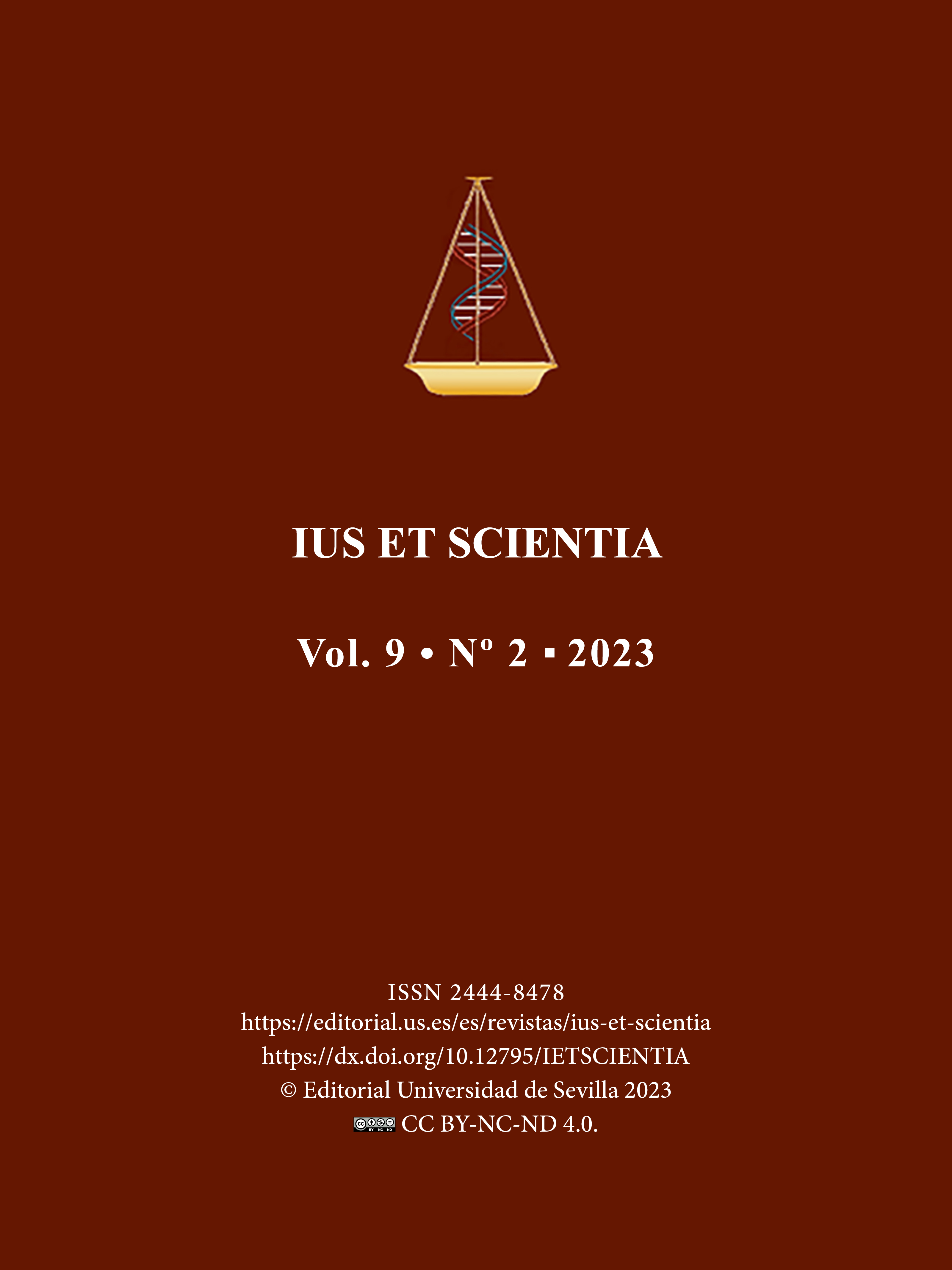The European Directive and the Production and Preservation Orders of electronic evidence in criminal proceedings. New insights?
DOI:
https://doi.org/10.12795/IESTSCIENTIA.2023.i02.06Keywords:
Gathering of electronic evidence, Service providers, Directive, European Production Orders for Electronic Evidence, European Preservation Orders for Electronic EvidenceAbstract
Procedural measures to obtain and preserve electronic evidence are increasingly important for the purposes of criminal investigation and prosecution across the European Union. If we tale into account that electronic data is often stored outside the investigating State, it is easy to understand the huge problem that gathering of these data, as evidence can generate. This study analyzes the recently approved legal instruments, designed to solve these problems: the Directive and the Regulation on European Production Orders and European Preservation Orders.
Downloads
References
CASTRO SÁNCHEZ, A. (2020). Propuesta de implementación de Carrier-Grade NAT para Guifi.net. Uoc.edu. https://openaccess.uoc.edu/bitstream/10609/118086/7/aaroncastroTFM0620memoria.pdf
CORHAY, M. (2021). Private Life, personal Data Protection and the Role of Service Providers: The EU E-Evidence Proposal. European Papers, 6.
DE HOYOS SANCHO, M. (2023). Novedades en materia de obtención transfronteriza de información electrónica necesaria para la investigación y enjuiciamiento penal en el ámbito europeo”. Revista de Estudios Europeos No Extraordinario monográfico, 1.
FRANSSEN, V. (2018). The European Commission’s E-evidence proposal: Toward an EU-wide obligation for service providers to cooperate with law enforcement? European Law Blog. https://europeanlawblog.eu/2018/10/12/the-european-commissions-e-evidence-proposal-toward-an-eu-wide-obligation-for-service-providers-to-cooperate-with-law-enforcement/
LARO GONZÁLEZ, E. (2022). Prueba penal transfronteriza: de la orden europea de investigación a las órdenes europeas de entrega y conservación de pruebas electrónicas”. Revista de Estudios Europeos, 79.
MARTÍNEZ SANTOS, A. (2023). Admisibilidad mutua de prueba penal transfronteriza en la Unión Europea: La propuesta de Directiva del European Law Institute”, en Revista General del Derecho Procesal.
PEERS, S. (2023). “The proposed European Investigation Order: Assault on human rights and national sovereignty”, http://www.statewatch.org/analyses/no-96-european-investigation-order.pdf
ROGALSKY, M. (2020). The European commission’s e-evidence proposal –critical remarks and proposal for changes. European Jouranl of Crime Criminal Law and Criminal Justice 28(4), 333-353, https://doi.org/10.1163/15718174-bja10018
SAYERS, D. (2011). “The European Investigation Order. Traveling without a ‘roadmap”. En www.ceps.eu.
SERGIO CARRERA, M. S. y. V. M. (2020). Cross-Border Data Acces in Criminal Proceedings and the Future of Digital Justice. Centre for European Policy Studies (CEPS). https://www.ceps.eu/wp-content/uploads/2020/10/TFR-Cross-Border-Data-Access.pdf
TOSZA, S. (2020). “All evidence is equal, but electronic evidence is more equal than any other: the relationship between the European Investigation Order and the European Production Order”. New Journal of European Criminal la
Documentos
Conclusiones del Consejo de la Unión Europea, de 9 de junio de 2016, sobre la mejora de la justicia penal en el ciberespacio, ST9579/16.
Dictamen publicado en el Diario Oficial de la Unión Europea de 10 de octubre de 2018 C 367/88
EDPS Opinion on the Proposals regarding European Production and Preservation Orders of electronic evidence on criminal maters. https://edps.europa.eu/sites/edp/files/publication/opinion_on_e_evidence_proposals_en.pdf
Fair Trials International “Fair Trials International’s response to a European Member States’s legislative initiative for a Directive on a European Investigation Order”, de 29 de junio de 2010, http://www.statewatch.org/news/2010/jul/eu-eio-ft-briefing.pdf.
Recomendación para la autorización de negociaciones con vistas a un acuerdo entre la Unión y los EEUU de América sobre acceso transfronterizo a las pruebas electrónicas para la cooperación judicial en asuntos penales, de 5 de febrero de 2019 COM (2019) 70 final.https://ec.europa.eu/info/sites/info/files/recommendation_council_decision_eu_us_e-evidence.pdf
Recomendación para una decisión del Consejo sobre la autorización a participar en las negociaciones de un segundo Protocolo Adicional del Convenio Europeo sobre Cibercrimen (CETS No 185). De 5 de febrero de 2019 COM (2019) 71 final. https://ec.europa.eu/info/sites/info/files/recommendation_budapest_convention.pdf
Published
How to Cite
Issue
Section
License
Copyright (c) 2023 Carmen Cuadrado Salinas

This work is licensed under a Creative Commons Attribution-NonCommercial-ShareAlike 4.0 International License.
Those authors being published in this journal agree to the following terms:
- Authors retain their copyright and they will guarantee to the journal the right of first publication of their work, which will be simultaneously subject to license recognition by Creative Commons that allows others to share such work provided it is stated the author’s name and his first publishing in IUS ET SCIENTIA.
- Authors may take other non-exclusive distribution license agreements version of the published work (e.g. deposit in an institutional digital file or publish it in a monographic volume) provided it is stated the initial publication in this journal.
- It is allowed and encouraged that Author s disseminate their work via the Internet (e. g. institutional digital files or on their website) prior to and during the submission process, which can lead to interesting exchanges and to increase citation of the published work.




